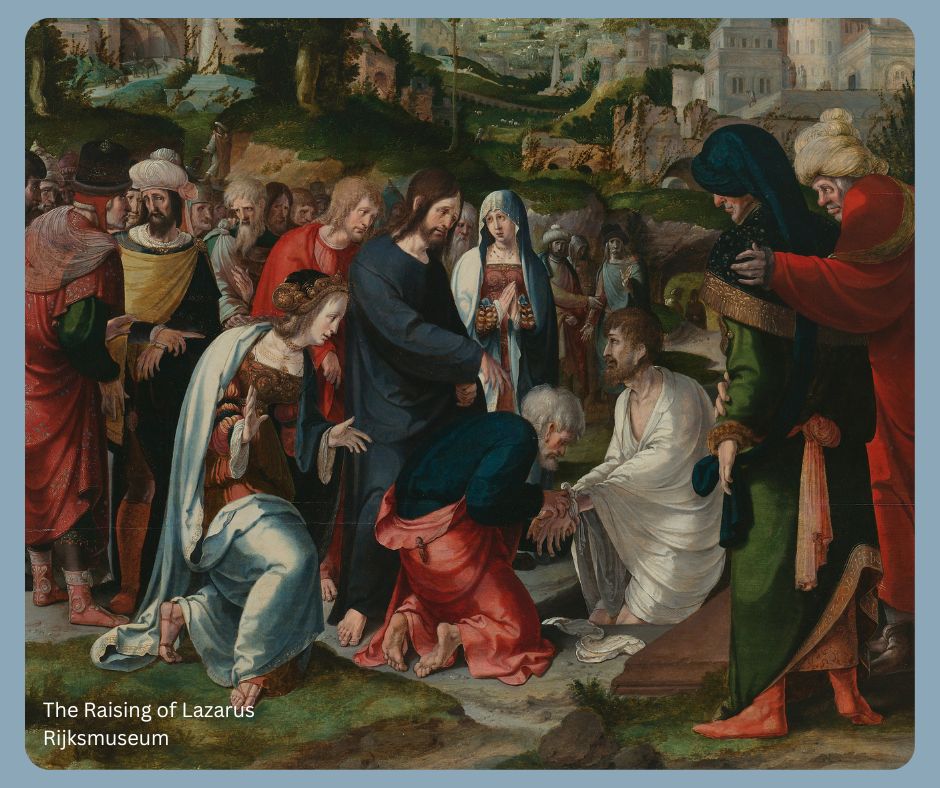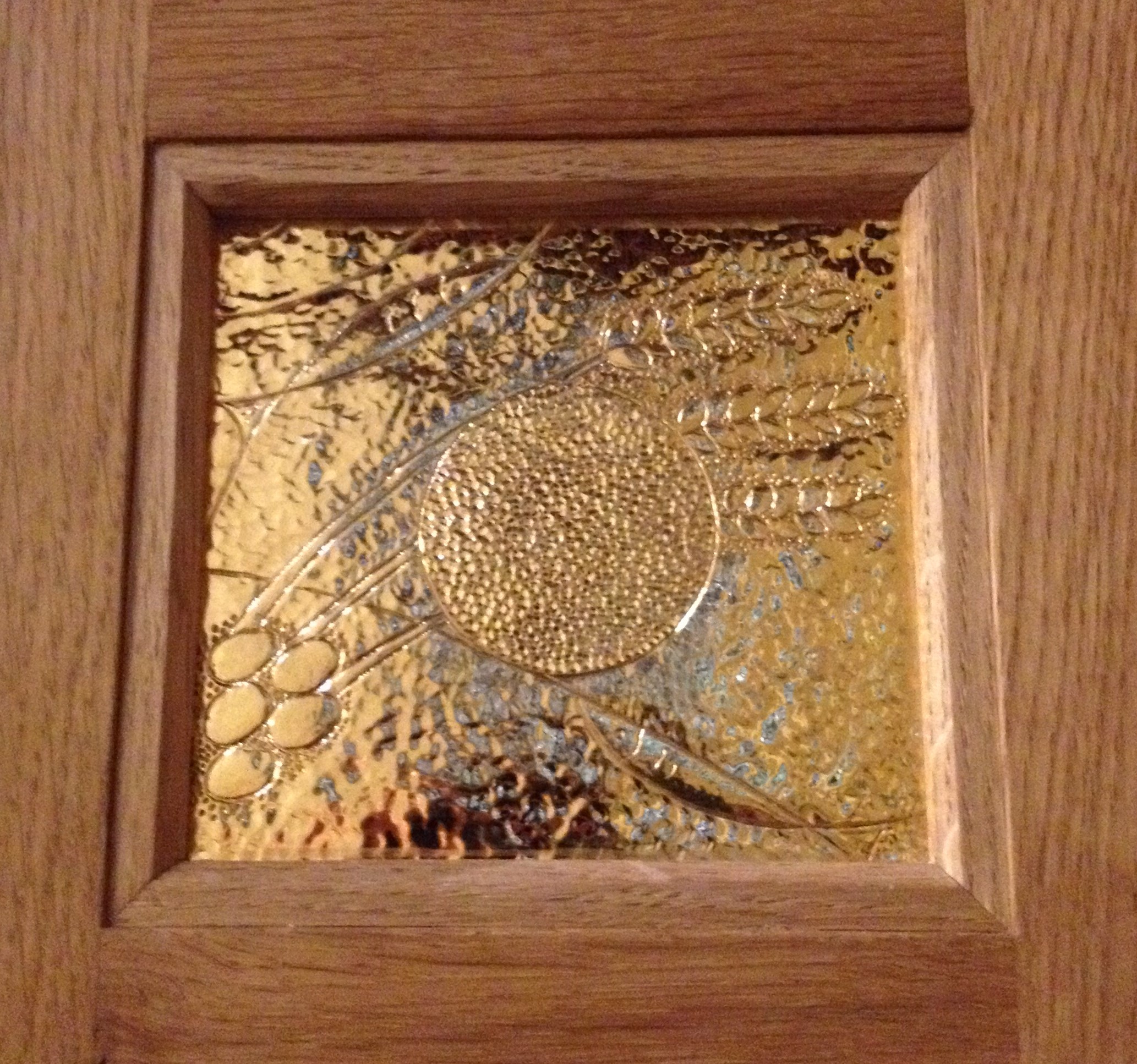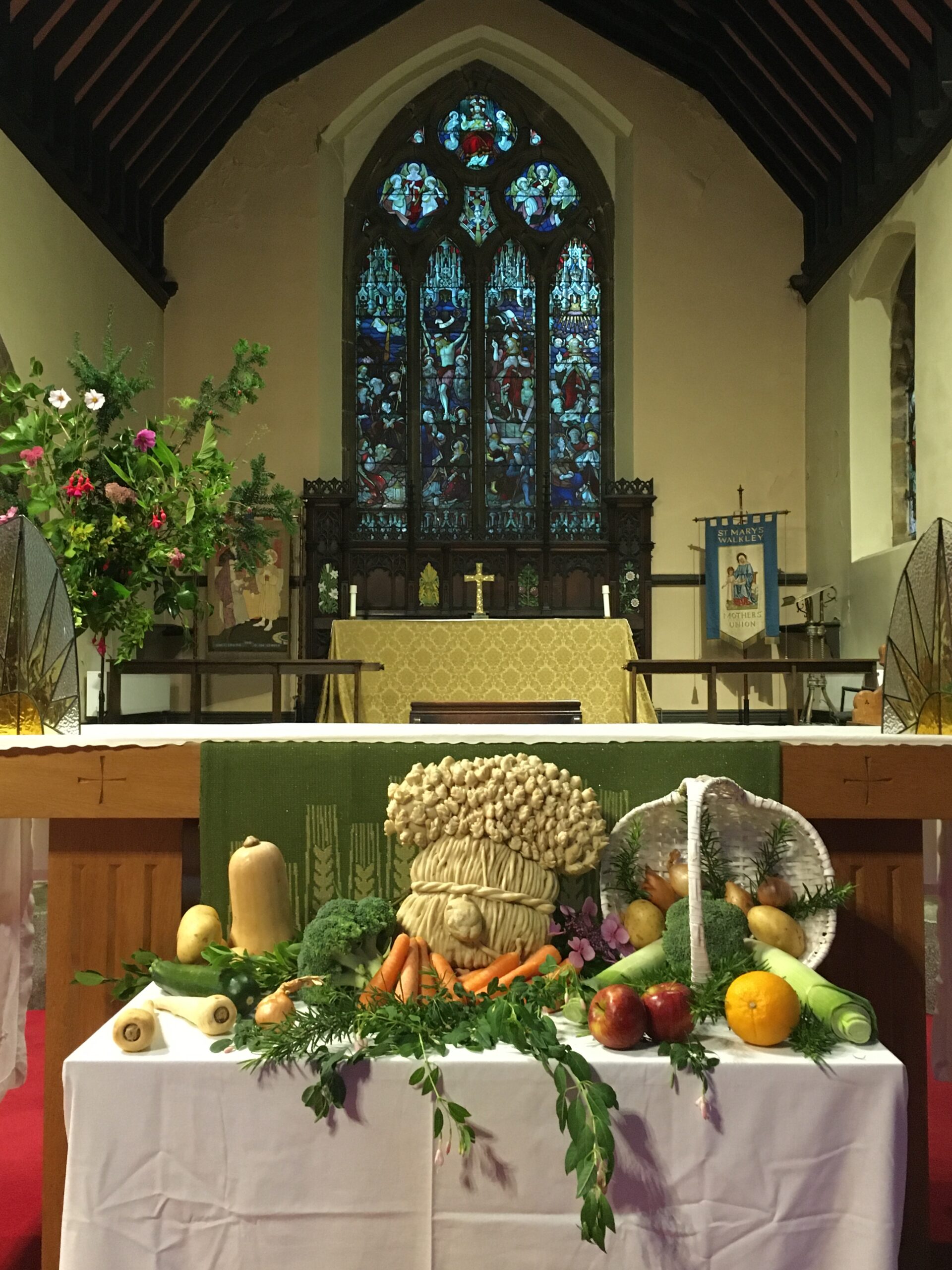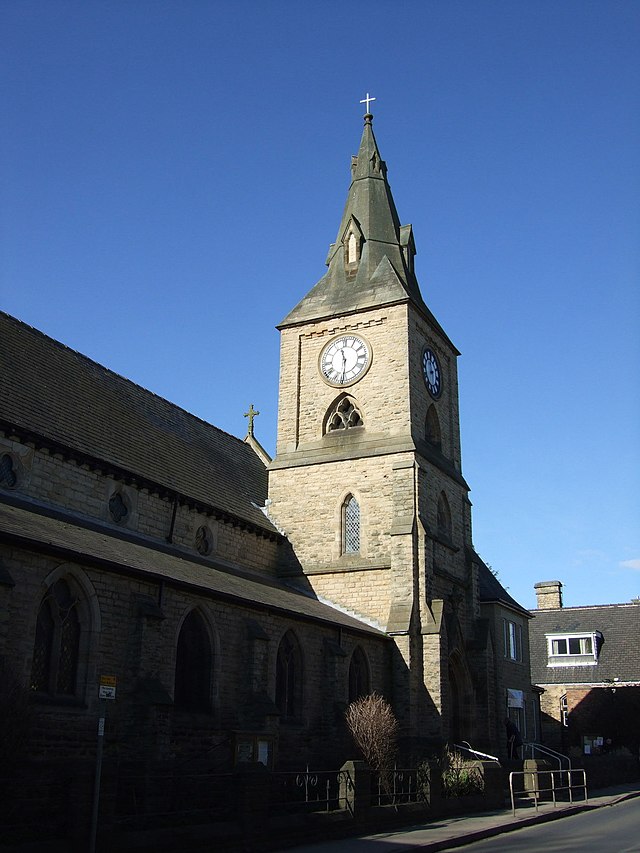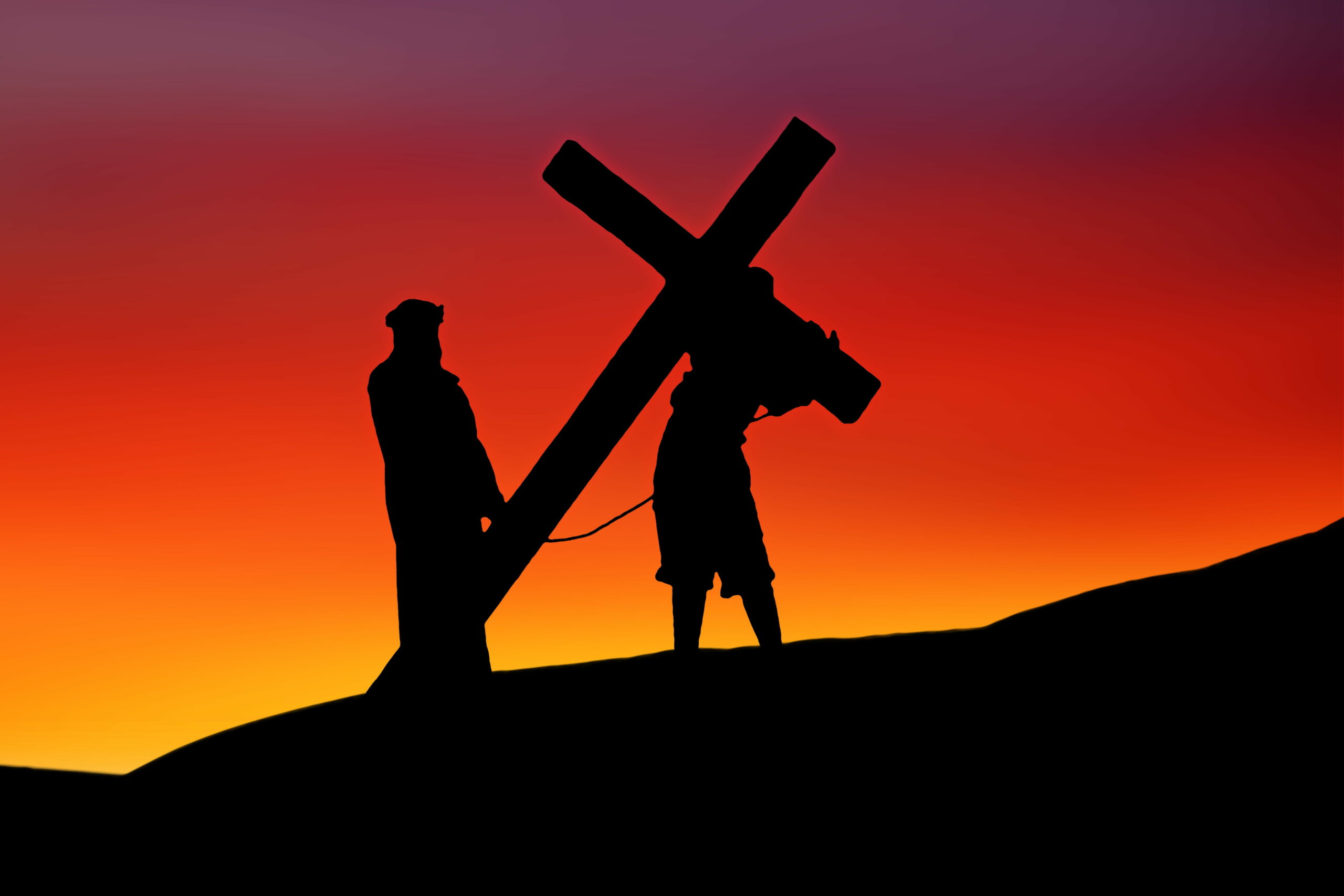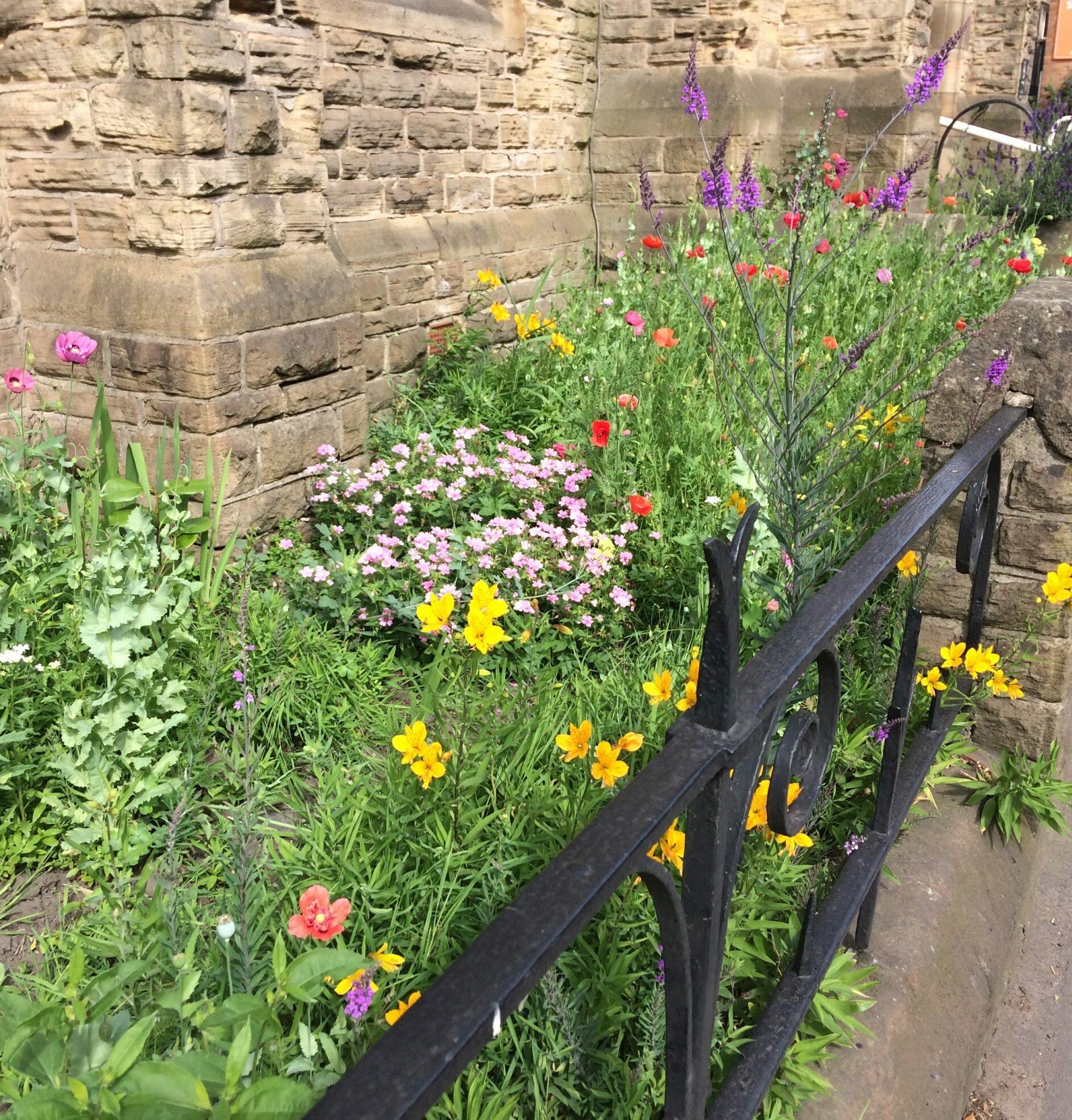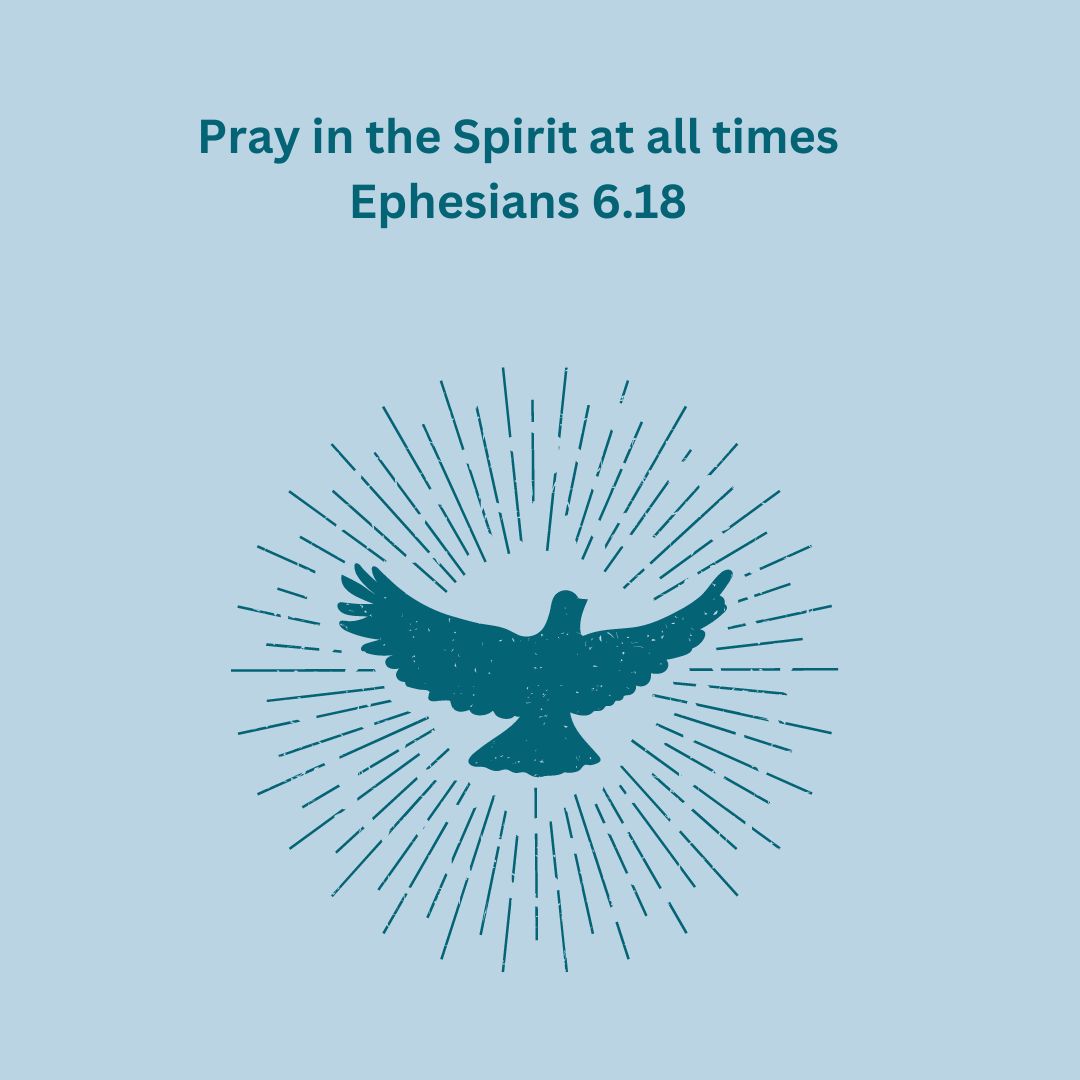The Sermon
By Joe, Reader at St Mary's.
May I speak in the name of the Father, the Son, and the Holy Spirit.
Amen.
Our Gospel reading is quite well known – the reading from Hebrews
probably less so, I think it acts as a useful lead-in…
The author of Hebrews tells us that
"the word of God is living and active, sharper than any double-
edged sword."
God's Word wasn’t just written down and intended to sit on a page –
or these days, on a web server – as an interesting historical note. It
is dynamic, living, active – a weapon. It is as relevant today as it was
when written. It cuts right to the core of our identity, discerning the
thoughts and intentions of our hearts. This is not always
comfortable. In fact, it can be deeply unsettling.
God's Word doesn’t just inform us; it transforms us. It challenges us
to confront the parts of ourselves we may prefer to hide—the parts
that cling to worldly values, that seek comfort and security sourced
from earthly things over faith and trust in God. God’s Word reveals
our true motivations, our struggles, our good intentions, our hidden
fears, our hidden sins.
There is no hiding place. In His presence, we can have no secrets.
When we engage with Scripture, we’re not just reading words on a
page. We’re encountering the living God. We’re treading on
dangerous ground, where we’re invited into a process of
transformation, a deepening relationship where we are constantly
being shaped into Christ’s likeness. This is inevitably going to be….
Uncomfortable. I don’t know about you, but I have a few things I’d
like to keep hidden in my life – things that I’m not entirely
comfortable about – and also some parts of my personality that I’d
like to keep for me, if you don’t mind. How much are we willing to
give up and expose? In the presence of God’s word – everything.
We don’t have a choice.
We come before a God who knows us completely—our failures, our
weaknesses, our brokenness—and yet still loves us deeply. Jesus
sympathizes with our weaknesses. He knows what it’s like to be
tempted, after all, He was fully human as well as being fully God.
With Jesus’s intercession, we can approach God with confidence,
knowing that we will receive mercy and find grace to help us in our
time of need.
In our Gospel reading, Jesus and his disciples meet a rich young man.
This is one of those Gospel stories that tends to make us
uncomfortable, especially if we’re honest about how much we value
our possessions, our financial security and our way of life. This young
man could actually be any of us; feel free to shuffle uncomfortably if
you wish to!
The young man approaches Jesus with a sincere question:
"Good Teacher, what must I do to inherit eternal life?"
He’s clearly someone who has lived a moral life, keeping the
commandments from his youth What we’d probably refer to as a
decent, law-abiding citizen – a pillar of the community. But Jesus
sees the one thing that is holding this man back from fully embracing
the Kingdom of God: his attachment to wealth.
When Jesus tells the young man to sell all he has and give to the
poor, He isn’t making a general rule for everyone to follow. He’s
identifying something very particular to this man; something that is
so big in his life, that it will stop him becoming more Christ-like. His
wealth.
Each of us has something within us that can potentially be that road-
block. It might be wealth and possessions; it might be our careers,
obsessive hobbies – any number of things that we can make the
centre of our lives, and that would prevent us from trusting and
serving God fully. Because that is what following Jesus is all about;
trusting and serving God in a whole-hearted and full manner.
The young man’s reaction is telling.
"His face fell, and he went away sad, because he had great
wealth."
Jesus doesn’t chase after him. Instead, He turns to His disciples and
says something that, for the people around him, would have been
truly shocking:
"How hard it is for the rich to enter the Kingdom of God!"
This was a radical statement at the time, because wealth was often
seen as a sign of God’s blessing. Jesus turns this idea upside down,
telling us that wealth, if we are not careful, can become a stumbling
block—a barrier between us and the more abundant life that God
offers.
Today we live in a world that often equates success with financial
prosperity. We’re constantly bombarded with messages that tell us
we need more—more money, more stuff, more security. What I’ve
occasionally referred to as the ‘You’re worth it’ culture.
But Jesus calls us to a different kind of wealth. He calls us to trust in
God and to live according to the Gospel teachings – with love,
generosity and mercy. This doesn’t mean that everyone is called to
sell all they have, but it does mean that we’re called to ask ourselves
a few questions. Are we placing our trust in our wealth and worldly
circumstances, or in God? Are we clinging to the things of this world,
or are we willing to give and share with those in need? In the song
‘Once in a lifetime’, David Byrne sings:
And you may find yourself behind the wheel of a large automobile
And you may find yourself in a beautiful house, with a beautiful wife
And you may ask yourself, "Well, how did I get here?"
And later in the song, we hear:
You may ask yourself, "What is that beautiful house?"
You may ask yourself, "Where does that highway go to?"
And you may ask yourself, "Am I right? Am I wrong?"
And you may say to yourself, "My God, what have I done?"
We are being prompted to ask ourselves what stops us from fully
following Christ. It’s going to be something unique for all of us. And
we almost certainly will find ourselves asking ‘Am I right or wrong in
how I lead my life?’ And we may well find ourselves asking God, in a
prayerful manner ‘What have I done?’
Jesus goes on to tell His disciples that it is easier for a camel to go
through the eye of a needle than for a rich person to enter the
Kingdom of God. A well-known story and saying, but we can now see
it differently. Entering the Kingdom requires total dependence on
God. It’s not something we can achieve through our own efforts,
wealth, or status – it relies on God’s grace.
The disciples – probably aware of their own shortcomings, and likely
concerned about their own future - ask, "Who then can be saved?"
Jesus answers:
"With man this is impossible, but not with God; all things are
possible with God."
This is good news for all of us. Whether we struggle with wealth,
pride, fear, or anything else, salvation is not something we can earn
or achieve on our own. It’s a gift of grace, made possible by God’s
love and mercy. Our job is to trust God, to follow Christ, and to let go
of whatever is keeping us from fully embracing God’s call on our
lives.
So, what can we take away from these readings today? First, we are
reminded that God's Word is alive and relevant. It challenges us,
questions us, and can transform us. We are invited to let the Word of
God do its work in our hearts, even when it’s uncomfortable.
Second, we are reminded that following Jesus requires surrender.
What we have to surrender is revealed to us by the Holy Spirit –
through study of scripture, prayer and making ourselves open to the
idea of change. Whether it’s our wealth, our plans, or our sense of
control, we are called to let go and trust in God. This isn’t easy. Like
the rich young man, we might find it hard to part with the things we
hold dear; such sacrifices are costly. But Jesus promises that those
who give up everything for His sake will receive a hundred times
more in this life—and in the life to come, eternal life.
May we, like the disciples, have the courage to ask, "What must I do
to follow You more fully, Lord?", the greater courage to follow
through with actions based on the answer we get, and may we trust
that with God, all things are possible.
Amen.
